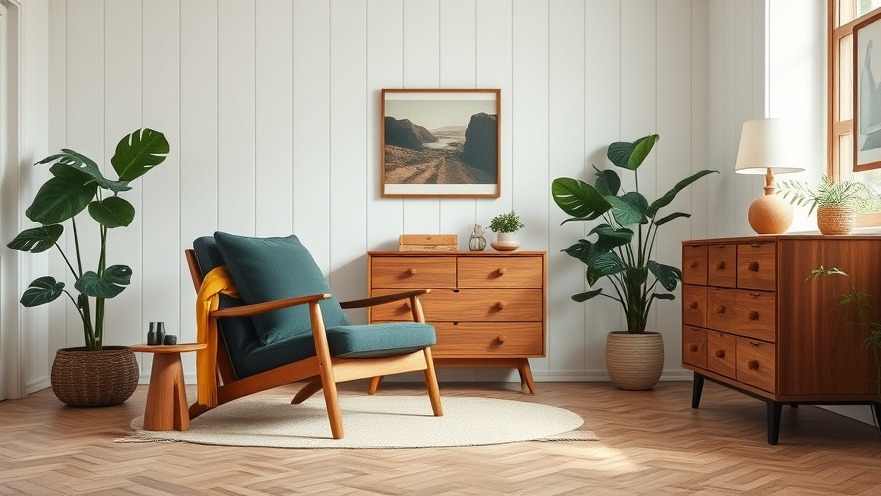
The Rise of Sustainable Furniture: A Response to Fast Furniture
The furniture industry is witnessing a paradigm shift, moving away from fast furniture—a trend characterized by mass-produced, low-quality, and often disposable items. In the UK alone, nearly 22 million small furniture items are discarded every year, contributing significantly to landfill waste. As an antithesis, sustainable furniture brands have emerged, focusing on quality, durability, and eco-friendliness. They utilize natural, reclaimed, or recycled materials to create pieces that not only beautify homes but also minimize environmental impact.
Brands Leading the Sustainable Furniture Movement in the UK
If you’re on the hunt for sustainable furniture that aligns with your ethical values, you’re in luck! Numerous brands across the UK prioritize sustainability without compromising on style. Here’s a closer look at some of the top picks:
Funky Chunky Furniture
Based in the North East of England, Funky Chunky Furniture specializes in made-to-order wooden furniture crafted from responsibly sourced wood certified by the FSC and PEFC. Their commitment to quality is evident in their 25-year guarantee for certain items, ensuring your investment lasts a lifetime. Additionally, they focus on recycling materials, aiming to minimize waste at every step of production.
Nkuku
Another standout, Nkuku, merges traditional craftsmanship with sustainable practices. They offer various handcrafted furniture items, showcasing a blend of rustic charm and modern design. Their commitment to fair trade ensures that artisans are paid fairly and work in safe conditions, further enriching the sustainability narrative.
Cocoon
Cocoon elevates sustainable living to an artistic level with their modern designs. The brand emphasizes using eco-friendly materials and processes in their production, ensuring the emissions created during manufacture are kept to a minimum. Choosing Cocoon means supporting innovative designs that are kind to the planet.
Practical Steps for Homeowners: Making Sustainable Choices
Transitioning to a more eco-conscious home doesn’t have to mean overhauling your entire space. Here are some actionable tips to embrace sustainability when furnishing your home:
Consider Pre-Loved Furniture
One of the simplest ways to reduce your environmental impact is by opting for second-hand furniture. Not only does this prevent waste, but it can also yield unique pieces that add character to your home.
Invest in Quality
While sustainable brands may come at a higher upfront cost, investing in quality furniture often pays off in the long run. Look for guarantees that ensure durability and longevity, reducing the need for frequent replacement.
Explore DIY Options
For those that enjoy hands-on projects, consider upcycling old furniture. A coat of paint or new upholstery can breathe new life into a discarded piece, reducing waste while allowing for personalization.
Future Outlook: Trends in Sustainable Furniture
The future of furniture is undoubtedly leaning towards sustainability, driven by an increasing awareness of environmental issues among consumers. As the climate crisis becomes more pronounced, the demand for eco-friendly, ethically sourced furniture will rise. Brands that prioritize not only aesthetics but also the well-being of the planet will thrive.
Innovations in Sustainable Materials
As creativity flourishes, new materials are emerging to reduce the environmental footprint of furniture production. Innovations like mycelium, which is derived from mushrooms, and recycled plastics are making their way into mainstream furniture design, offering exciting possibilities for eco-conscious consumers.
Contemplating the Bigger Picture
Choosing sustainable furniture isn't just about the physical items within your home; it's a commitment to a broader movement advocating for a healthier planet. Each purchase serves as a reminder of our collective responsibility to minimize waste, champion ethical practices, and foster a more sustainable future.
As you consider furnishing choices for your home, remember that every small step makes a difference. Opting for sustainable furniture is not only beneficial for the environment but also promotes a lifestyle rooted in intentional living.
Ready to make a sustainable choice? Learn more about how to improve your home’s eco-footprint by exploring these brands and consider investing in quality furniture that lasts.
 Add Row
Add Row  Add
Add 




Write A Comment